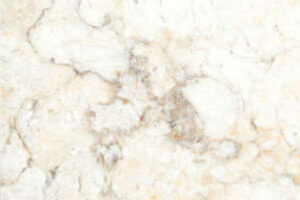Countertops are a necessary part of any home. They serve as both an aesthetic and practical function. However, with the numerous alternatives in the market, which countertop material is best for you?
Granite Counters
Granite is a preferred countertop material when there are no other things to dwell on — such as the budget. It defines stylishness in a kitchen. As granite use becomes more prevalent in many homes, the cost comes down.
Pros: Luxurious, rich look natural stone, scratch-resistance and durability.
Cons: Classy, hard, and needs habitual sealing and can flake (although chip revamp can be a DIY task which is also effective)
Ceramic Tiles
Ceramic tile is easy to clean and durable. On top of being so reasonably priced, it is a great option for countertops for an average residence. Because it is installed a section at a time and most imaginative homeowners can complete it.
Pros: has a wide array of options, heat-resistant and versatile design
Cons: Grout must be correctly sealed, or it will tarnish, tiles can chip and be tricky to restore
Engineered Stone
Engineered stone is made up of about 93% quartz particles. It is obtainable in a broader assortment of colors when compared to granite and has a nonporous exterior that is scratch resistant. It is simple to maintain, devoid of any annual sealing necessary by natural stone.
Pros: Resistant to acid and stains; easy care.
Cons: Costly.
Solid Surface
Since solid surface counters are purely what the name suggests, solid, every scratch can be sanded out. The solid surface countertop is tailor-made to your requirements by the manufacturing companies.
Pros: A variety of colors, easy to clean, durable and tough
Cons: Fairly costly and have poor heat resistance
Laminates
Laminate countertops bear trademarks like Nevamar, Wilsonart, and Formica. They are made from plastic-covered synthetics with a silky surface that is trouble-free to clean. The pieces are cut according to size and finished at the ends.
Pros: Affordable, easy to clean and excellent style range
Cons: Some look inexpensive, scratch somewhat easily and not resistant to heat
Butcher Block Or Wood
Wood countertops present a gorgeous warm look and are obtainable in an assortment of finishes and colors. Hardwoods like oak and maple are the most often used wood countertops.
Pros: Several looks available, within your means and warmth of natural wood
Cons: Must be oiled and sealed correctly frequently to avoid water damage
Stainless Steel Counters
For a genuinely industrial and contemporary look for your kitchen counter, stainless steel is an excellent material. The Stainless Steel counters are durable and heat resistant. Since they are built to your specifications, you can get a perfect countertop.
Pros: Easy to clean, beautiful, scratch-resistant and very durable
Cons: To some extent, they are sterile in looks and pricey
Soapstone Counters
Soapstone usually has a dark grey color and a smooth feel. It is common in historic homes, but it can also be used in contemporary homes as both sink material and a countertop.
Pros: Deep color; smooth texture; a bit stain resistant.
Cons: Needs regular repairs with mineral oil applications; might crack and get dark with time
Marble Countertops
Owing to an exceptionally high price tag marble counters are not commonly seen on the countertops of the entire kitchen. Marble needs invariable maintenance, as it effortlessly stains. Some new sealers also delay staining.
Pros: Eye-catching looks
Cons: Not customarily employed in kitchens owing to the likelihood of staining and often require and proper sealing

Finally, ensure that you select a countertop that is within your financial plan. When you are remodeling a kitchen, there are lots of things to think about including flooring, appliances, and cabinets.
